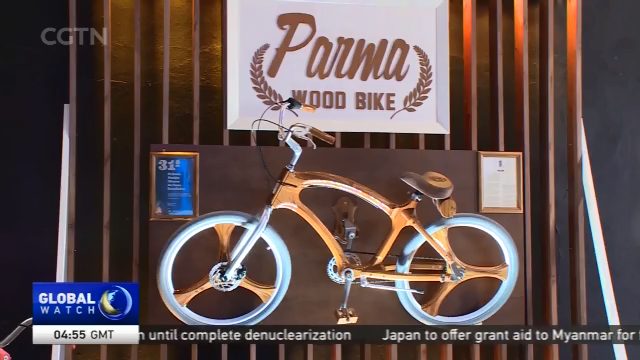
13:31, 15-Jun-2018
Velo-City 2018: Rio is first Latin American city to host international cycling summit
02:47

Brazil has become the first Latin American country to host the world's largest cycling conference. Some two-thousand experts have gathered in Rio de Janeiro for the three-day event, known as "Velo-city". CGTN's Lucrecia Franco reports.
A six kilometer international bike parade around Rio de Janeiro one of the most exciting moments of this year's global Velo-city forum.
Founded in 1980 with ties to the European Cyclists' Federation, the event aims to promote green urban mobility. This year's motto is "Access to Life".
MARCIO DESLANDES GLOBAL POLICIES DIRECTOR "If you think about most people in the global south they are spending sometimes over two-thirds of their wages on transportation. By either walking or biking the first and last kilometer you would cut that expense by half at least, and that would mean a lot more economic power and that means inclusion and that means access to life for everyone."
Experts from more than thirty countries are discussing topics such as sustainability and inclusion, especially in Latin America where cycling is still linked more to leisure than as a means of transportation.
VICTOR ANDRADE FEDERAL UNIVERSITY RIO DE JANEIRO "Unfortunately we do not have that many people riding bikes to work on a daily basis. We only have five percent of the inhabitants of Rio using bikes and that is not enough, we need much more than that."
Cycling is also big business. Bike share companies, top bike brands and accessory manufacturers are present at the forum. According to the organizers, there are more than two billion bikes in use around the world.
LUCRECIA FRANCO RIO DE JANEIRO "Rio was chosen to host this first Latin- America edition of Velo-city because of its efforts to become a bicycle-friendly city, offering now more than 400 kilometres of bike paths."
Still the city and the country face serious challenges. According to the latest official figures 32 people are hospitalized every day in Brazil from injuries sustained in bike accidents.
VICKY GONCALVES CYCLIST "We have lots of bike paths and lanes, but car drivers don't respect us, that is the reason for so many deaths and accidents."
Though safety is still an issue, many Cariocas, as Rio's residents call themselves, say they'd like to rely more on pedal-power because it's healthy, green and cheaper than driving. Lucrecia Franco, CGTN, Rio de Janeiro.

SITEMAP
Copyright © 2018 CGTN. Beijing ICP prepared NO.16065310-3
Copyright © 2018 CGTN. Beijing ICP prepared NO.16065310-3